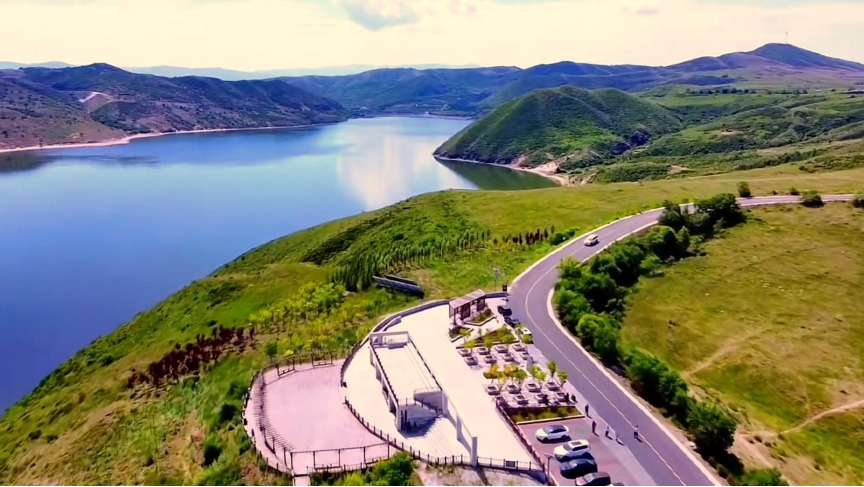
Duolun Lake in Inner Mongolia, China. /CGTN
Duolun Lake in Inner Mongolia, China. /CGTN
Clean air and water are beneficial not only to the health of humans and ecosystems but also to the economy of a place. In China's Inner Mongolia Autonomous Region, a major afforestation campaign has boosted a wide range of industries: from farming and forestry to tourism.
From just 20 hectares of forest in 2000, to over 350 hectares in afforestation today, a "green facelift" is starting to pay dividends here. After years of effort, this small village in Duolun, a county once 80 percent covered by desert, is reborn.
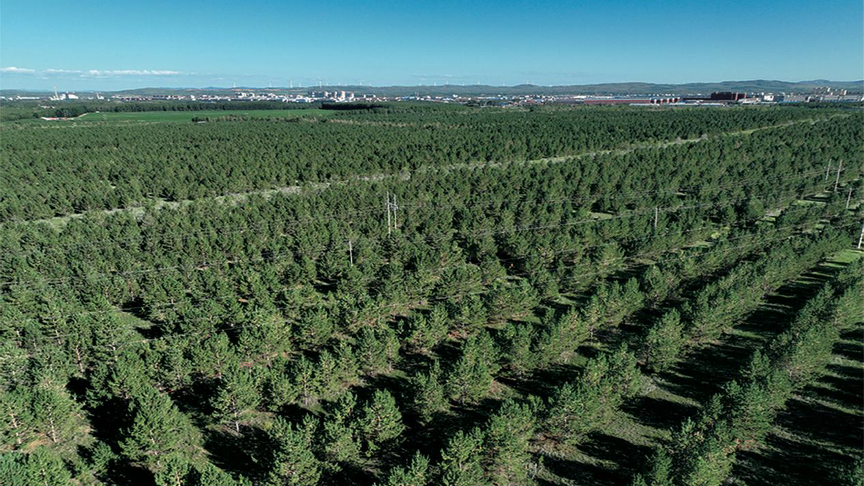
Today's Duolun County, Inner Mongolia, China. /CGTN
Today's Duolun County, Inner Mongolia, China. /CGTN
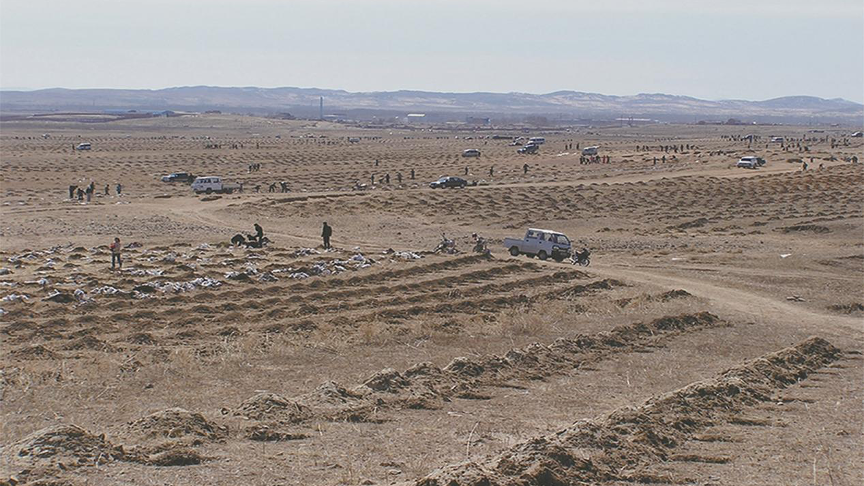
An image showing Duolun County in the 2000s. /CGTN
An image showing Duolun County in the 2000s. /CGTN
Li Xiaojing runs a guesthouse in Duolun, and she just had a busy summer. Many of her customers are from Beijing and Tianjin. They are attracted to the natural beauty here.
Afforestation can only be successful if locals are willing to participate so that they can reap benefits from these projects over the long run.
"The changes are unbelievable. There was nothing around Duolun Lake in the past. Now it's known as the back garden of Beijing," said Li.
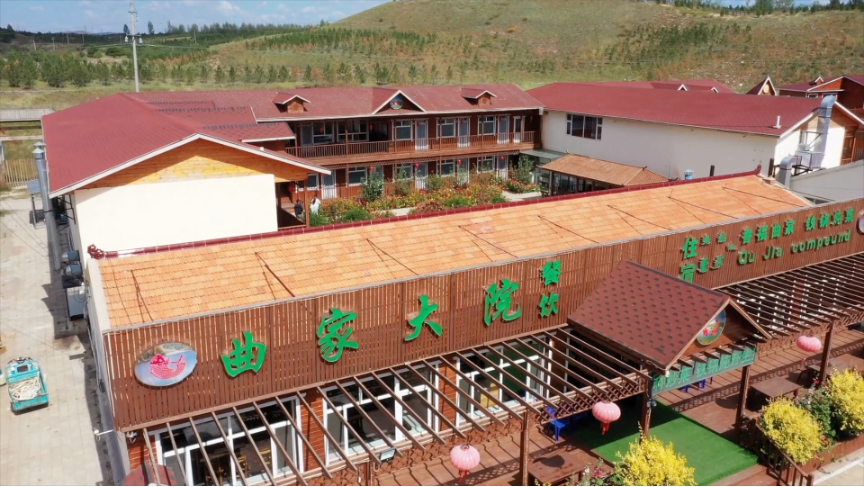
The guesthouse run by Li Xiaojing in Duolun County, Inner Mongolia. /CGTN
The guesthouse run by Li Xiaojing in Duolun County, Inner Mongolia. /CGTN
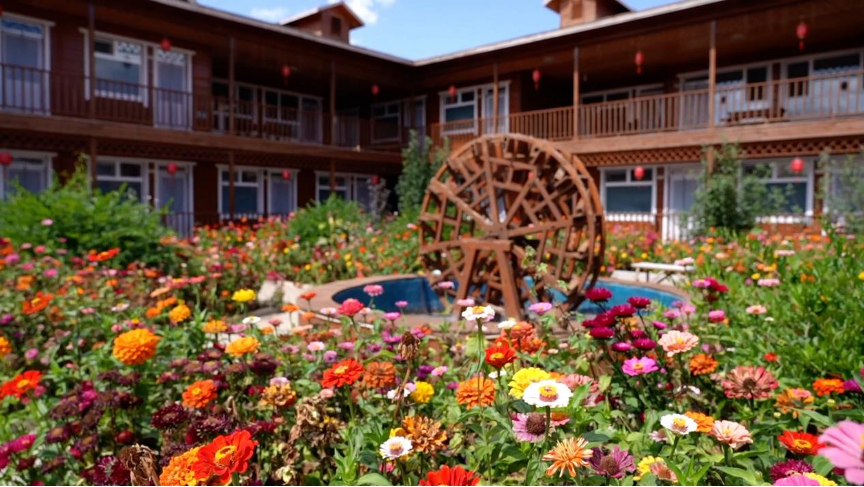
The guesthouse run by Li Xiaojing in Duolun County, Inner Mongolia. /CGTN
The guesthouse run by Li Xiaojing in Duolun County, Inner Mongolia. /CGTN
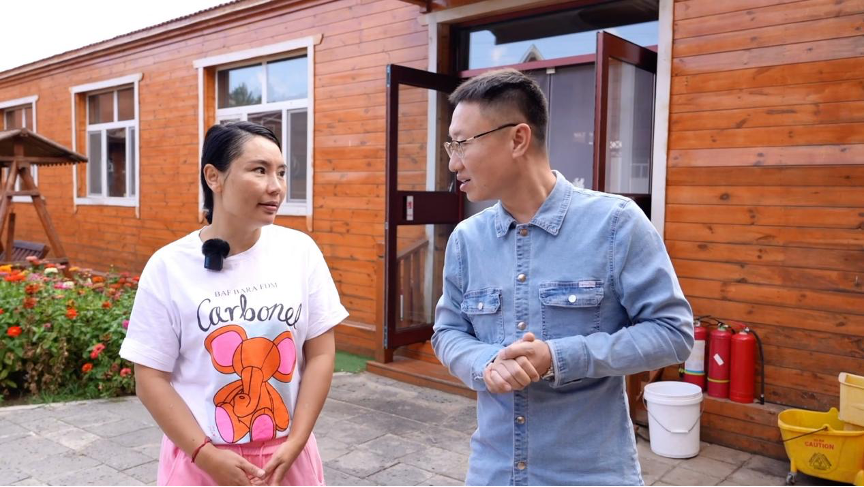
Li Xiaojing talked with a CGTN reporter at her greenhouse. /CGTN
Li Xiaojing talked with a CGTN reporter at her greenhouse. /CGTN
From 80 percent of land covered in sand to 80 percent covered in vegetation, the green miracle of Duolun is the result of policy support by its local government combined with the efforts of the villagers there since 2000.
"Green-driven development has significantly boosted the local economy. There are three villages near Duolun Lake, and nearly all the villagers now make a living off tourism," Pan Lizhong, the manager of a Duolun lake resort told CGTN in an interview.
The green economy is not just taking off in Duolun County, but many places across Inner Mongolia.
In one e-commerce warehouse, hundreds of agricultural products made in the afforested area are proof why a green facelift results in dividends.
"The starch and wheat produced here are of great quality, and they have other agricultural by-products. We've set up this e-commerce center with the aim to better branded products from Hetao, and to develop business clusters," said Zhang Wang, the director of Green Leaf Group in Bayannur.